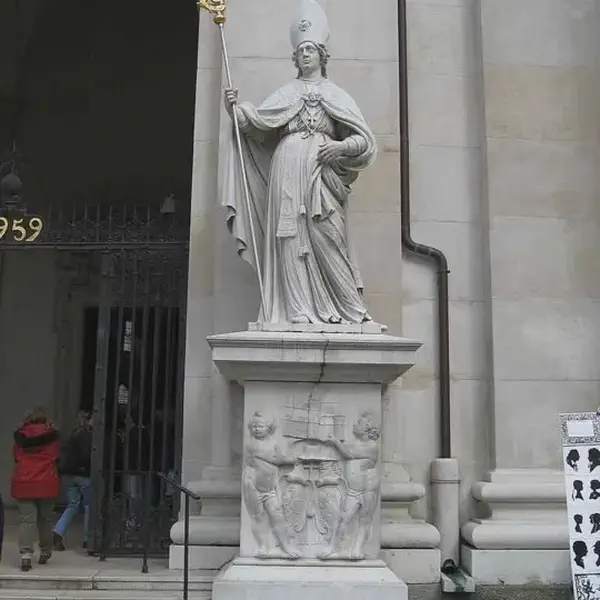
St. Vergilius or Ferghil, the Geometer, Died
November 27, 784
Virgil (c. 700– 27 November 784), also spelled Vergil, Vergilius, Virgilius, Feirgil or Fearghal, was an Irish priest and early astronomer.
He left Ireland around 745, intending to visit the Holy Land; but, like many of his countrymen, he settled in Francia.
He was received with great favour by Pippin the Younger, who was then Mayor of the Palace under Childeric III of Franconia. He was an adviser to Pippin. He probably used a copy of the Collectio canonum Hibernensis (an Irish collection of canon law) to advise him to receive royal unction in 751, to assist his recognition as king Pippin III after the deposition of Childeric.
Virgil served as abbot of Aghaboe, bishop of Ossory and later bishop of Salzburg. He was called “the Apostle of Carinthia” and “the geometer”.
Ferghil the Geometer
Saint Virgilius of Salzburg, also known as Ferghil the Geometer, was an early medieval Irish churchman and astronomer.
He originated from a noble family of Ireland, where his name was Feirgil or Fearghal, and is said to have been a descendant of Niall of the Nine Hostages. Feirgil was probably educated at the Iona monastery.
He later served as the Bishop of Salzburg. While there is some historical uncertainty surrounding his life and the details of his contributions, Virgilius is often associated with early discussions on cosmology and the shape of the Earth.
There are conflicting accounts of Virgilius’s death, and some historical sources suggest that he died around the year 784. However, the details and circumstances of his death are not as well-documented as some other aspects of his life. Virgilius is sometimes credited with promoting the idea that the Earth is round, based on his writings discussing the nature of the cosmos.
Veneration
He is venerated as a saint in both the Catholic Church and the Eastern Orthodox Church. In 1233, he was formally canonized by Pope Gregory IX.
His doctrine that the earth is a sphere was derived from the teaching of ancient geographers, and his belief in the existence of the antipodes was probably influenced by the accounts which the ancient Irish voyagers gave of their journeys. This, at least, is the opinion of Rettberg (Kirchengesch. Deutschlands, II, 236).